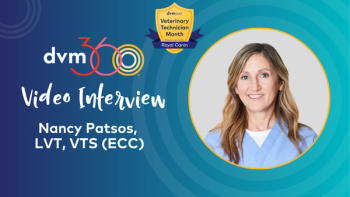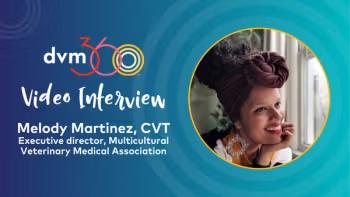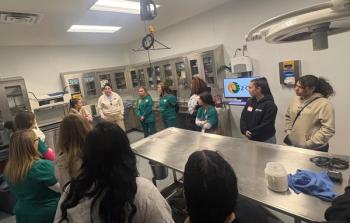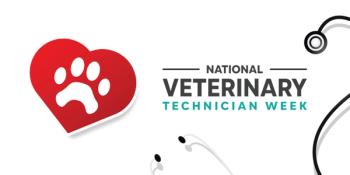
5 ways to better utilize your technicians
A veterinary practice with skilled veterinary technicians fully using their skills is a dynamo to see in action. Get your own dynamo up and running with these tips.
(Tyler Olson / stock.adobe.com)
Many veterinary practices are taking full advantage of the licensed, certified or registered veterinary technicians in their midst. But lots of hospitals have yet to get on board with properly delegating to their medically trained veterinary nurses. Check out these five ways to better utilize your technicians and see if you can't help make it happen in your hospital.
No. 1: Let technicians operate at the top of their license to make more money
A term widely used in the human medical field, “operating at the top of your license” is one way to make sure technicians do everything they're licensed to do in a hospital. According to
Technicians-just like veterinarians-have a limited number of hours to work in a day, but many clinics are still using them for laundry, cleaning and restraining animals for exams. In addition to increased job satisfaction, hiring additional staff to do nontechnical work comes at a lower hourly rate, which increases your bottom line.
The AVMA agrees with me!
The nation's biggest veterinary organization has done
No. 2: Play to your team's strengths
Veterinary technicians aren't one-size-fits-all employees. They're a mix of extroverts, introverts, multitaskers and methodical personalities. An extroverted person might love client education but hate being in the back doing lab work all day. These preferences and workplace strengths don't need to be a bad thing. Put these strengths to work. If one of your technicians loves helping with surgery and doesn't mind taking a late lunch, let them have it! When everyone isn't doing everything, this doesn't mean people aren't team players-it means your team is working in a collaborative, efficient way.
When I worked on the floor in a busy emergency clinic, we added a wonderful older CVT to our team. This was her second career, which meant she was extremely passionate about what she did. Her past experience plus her new knowledge made her a wizard in the back. She could handle the whole hospital's laboratory demands without blinking an eye. When running a code, she was there with pen in hand making sure all the materials were billed for while everyone else was doing the heavy lifting. I was grateful for her, because while I loved triage, doing lab work was like pulling teeth for me.
To really use your team's strengths together in your hospital, you need clear communication. If people only do the jobs they like to do, they can come across as not being team players. To avoid this, collaborate with your team by asking each individual what their strengths are, setting up clear expectations and agreeing on what behaviors will not be OK as you transition people's workload.
No. 3: Create learning opportunities in the clinic
Mastery is a top motivator for veterinary professionals, and technicians are no exception. Most technicians will battle it out to place their first central line or urinary catheter. Many hospitals have a waiver on their euthanasia forms to allow for medical practice. When a team member wants knowledge and experience but doesn't have the opportunity to practice, it can be hard to stay motivated.
These procedures are more common in certain settings like emergency or specialty hospitals, but that doesn't mean the opportunities aren't there in general practice. Learning to suture, place stay sutures or even practice performing a cystocentesis could be enough to support your technicians in mastering their role.
No. 4: Help your technicians gain more knowledge outside the clinic
Continuing education is an underused resource. If you don't already have a reasonable CE budget for your staff, put it on your to-do list. If you're paying your technicians to go to CE, then get the most out of that knowledge-ask them to come back and teach everyone else what they learned.
My team added this exercise to our monthly team meetings as a way for people to bring in new ideas and grow the business. Each month a different team member presented to the group new ideas from the CE they'd gotten and how these ideas might be implemented. This allowed my team to critically think about what we could be doing better and how to improve.
No. 5: Invest in team building
Trust between veterinarians and veterinary technicians in managing patient care and clients is earned in small moments and is equally taken away when mistakes are made. Without trust, technicians won't be used to their fullest extent. So, don't wait until the hospital team is falling apart to invest in team building. Team building comes in many forms, from a field day where people have to work together to accomplish a common goal or bringing in a facilitator to do personality assessments and play communication games. Learning what makes each person unique and communicating well in hard times sets teams up for success.
The field of veterinary medicine has changed, and more and more veterinary technicians are going to school and getting highly educated in their role. When veterinary technicians are supported on the floor and in their career, it creates a lasting effect. Hospitals that invest in fully using their technicians' skills can see benefits in revenue, efficiency and wellbeing.
Kristina Guldbrand worked as a certified veterinary technician for 12 years before becoming an account manager for Veterinary System Services, a company that provides staffing, consulting and hiring help to practices in the Denver, Colorado, area. She has received training through the International Coaching Federation and provides workshops, leadership and wellbeing coaching as well as teambuilding for practices.
Newsletter
From exam room tips to practice management insights, get trusted veterinary news delivered straight to your inbox—subscribe to dvm360.






